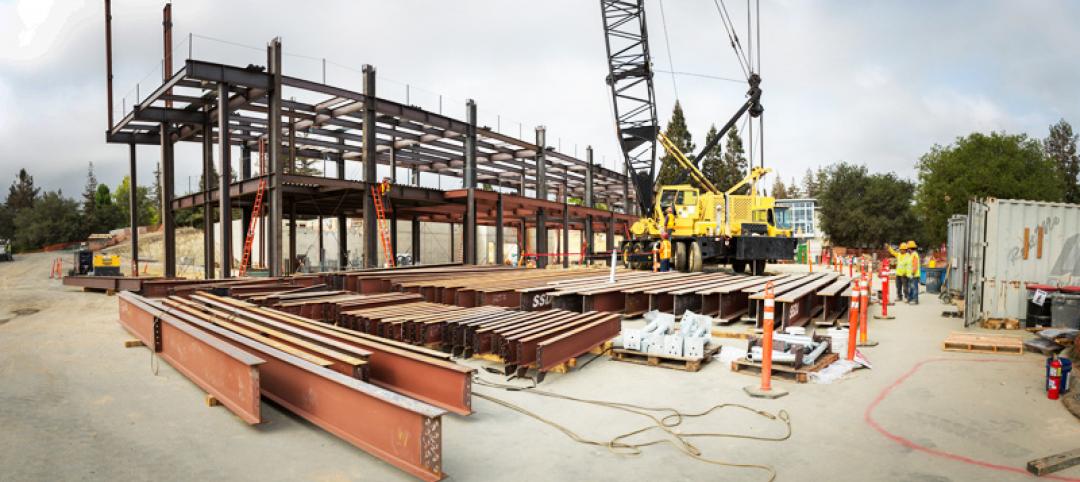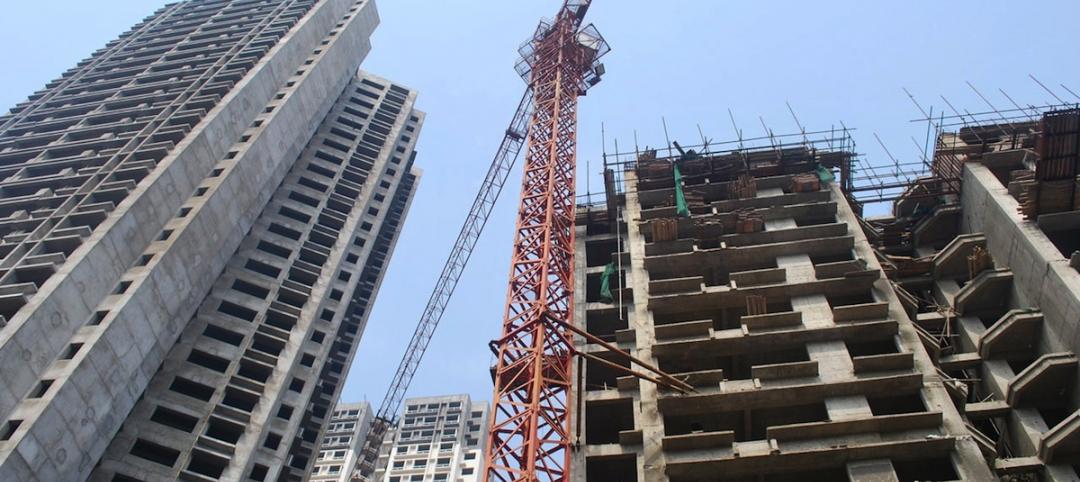The developer of a New Jersey condominium development and its architecture firm face a $10 million construction defect verdict in a case involving non-compliance with fire codes.
The Grandview I building on the Hudson River, developed by Hovnanian Enterprises’ subsidiary, K. Hovnanian and designed by RTKL New Jersey Architects, was alleged to have been built in a condition that was not compliant with fire codes. The plaintiff—the condominium association--alleges that the developer knew about the non-compliance and failed to disclose this fact with buyers.
According to the plaintiff’s attorneys, the architect designed the building with plywood subflooring and later warned the developer that to comply with code the structure would have to be reclassified from Type 2 to Type 3. The reclassification would have allowed plywood if the building’s exterior steel-with-brick-veneer walls were rebuilt with code-required masonry walls.
The building codes provide for five types of buildings, ranging from the most fire-resistant Type 1 — often a skyscraper — to Type 5, typically a wood-framed house. Defense attorneys argued that the plywood flooring was not a life-safety issue, since fire alarms and exits would allow all residents to safely vacate the building. The condo association's attorneys agreed that there was no threat to residents' lives, but that property could suffer more damage as a result of the code violation.
Related Stories
Codes and Standards | Jun 4, 2015
NIBS, RICS to explore P3 as tool to achieve high-performance buildings
The idea of applying the P3 concept more to buildings, and especially building performance, is a potentially promising new avenue in the U.S., according to the trade groups.
University Buildings | May 30, 2015
Texas senate approves $3 billion in bonds for university construction
For the first time in nearly a decade, Texas universities could soon have some state money for construction.
Multifamily Housing | May 30, 2015
Energy Department releases resources to assess building energy benchmarking policies, programs
The new handbook demonstrates methodologies using real data from New York City.
Codes and Standards | May 27, 2015
Construction industry concerns with ‘Waters of the U.S.’ rule remain
EPA and Corps of Engineers rule may lead to a longer, more expensive permitting process
Codes and Standards | May 22, 2015
Rapid growth for environmental insurance in construction industry
The U.S. Environmental Protection Agency is paying closer attention to intrusion of potentially harmful vapors into commercial and residential buildings.
Codes and Standards | May 22, 2015
Roof collapse at Minnesota water park highlights failure to enforce codes
Rural areas say they can’t afford to enforce state-adopted building code.
Codes and Standards | May 22, 2015
U.S. House scuttles EPA plan to expand definition of waters in Clean Water Act
Construction industry officials said the rule would hamper developers, cost jobs.
Codes and Standards | May 22, 2015
First EPD covering PVC water and wastewater piping published
Benchmarks impacts of seven PVC pipe products across their life cycles.
Office Buildings | May 18, 2015
New ASHRAE standard offers test method to determine heat gain of office equipment
The standard will aid engineers in configuring cooling systems in office buildings.
Codes and Standards | May 7, 2015
Widespread damage from Nepal earthquake due to poor implementation of building code
Nepal’s code author says destruction was ‘inevitable.’














